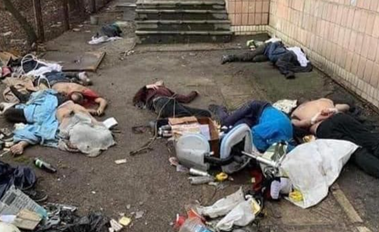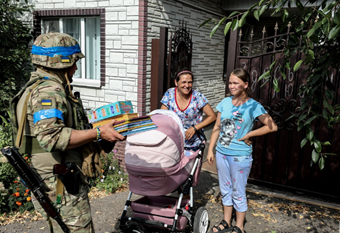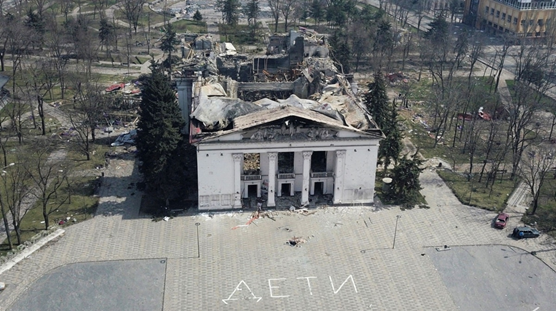“The short memory of the Russian bear”

Just as Donald Trump is trying to blame Ukraine for starting the war, the Russian propaganda machine has launched a new information campaign against Ukraine's armed forces, attributing to Ukrainian servicemen crimes virtually identical to those committed by the Russian military in the spring of 2022 in the town of Bucha in the Kiev region.
Following the principle of “the more monstrous the lie, the more willingly it is believed”, the Kremlin information pool, which includes both Russian diplomats and journalists and foreign agents of influence, has begun throwing into the international information space staged interviews, video and photo materials that are supposed to depict evidence of “atrocities” by the Ukrainian military in the Kursk region.
It should not be forgotten that the Russian side never allows foreign investigators to visit the site of high-profile incidents in the period of time when important evidence can be discovered and when the team has not yet worked on the cleanup or, on the contrary, on the picturesque arrangement of the necessary “props”.
The appearance of Kazakhstani specialists in the investigation of the recent crash of an Azerbaijani airplane was due to an exceptionally unfortunate coincidence for Russia - the airplane did not sink in the Caspian Sea as planned.
But in the case of the “genocide” (Russian journalists do not shy away from loud epithets) in the Kursk region, Russia is trying to “legitimize” its accusations at the expense of the Red Cross.
The masters of information warfare serving the Russian authorities have created so many fakes and generated such volumes of lies that it is really difficult for them to come up with anything fundamentally new. Therefore, the attempt to use the Red Cross is not new either.
It is easy to remember the infamous “humanitarian convoys” to Donbass, which were attempted to give a semblance of legality at the expense of the same organization. In 2014, the Red Cross refused to be a cover for supplies to pro-Russian militants; in 2025, it found the strength to make a general statement (“civilians in armed conflict must be protected from violence and reprisals”).
At the same time, contact with real, not demonized by Russian propaganda, Ukrainian military personnel has led to unexpected results - residents of Kursk region themselves, instead of moving to other regions of Russia, are increasingly requesting to be evacuated to the territory of Ukraine.
Bucha 2022

Suja 2024

And while the Russian armed forces are dropping aerial bombs on the heads of their fellow citizens (which, unfortunately, comes as no surprise after the Mariupol Drama Theater, educational institutions and children's hospitals), the Ukrainian military is maintaining order in the controlled territories of the Kursk region, preventing attempts at looting by the Russians who remain there and constantly supplying the inhabitants with humanitarian aid.

Two stories of the military being on the territory of another country. In Bucha (and other towns in Kiev and other regions of Ukraine), it was about occupation and killing; in Kursk region, it was about preserving humanity even in the conditions of military operations.
